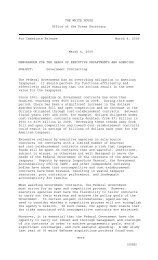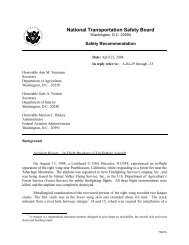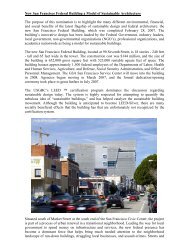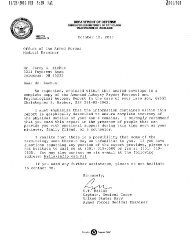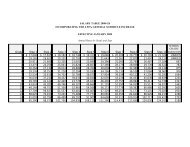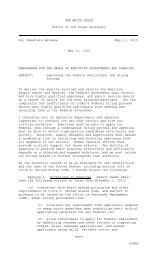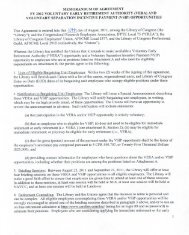Accenture's fifth annual global e-government study
Accenture's fifth annual global e-government study
Accenture's fifth annual global e-government study
Create successful ePaper yourself
Turn your PDF publications into a flip-book with our unique Google optimized e-Paper software.
asic technology for digital signatures to <strong>government</strong><br />
organizations and the public. Through the scheme,<br />
all Danish citizens can download a free softwarebased<br />
digital signature, providing sufficient security<br />
for most public-sector and private-sector transactions.<br />
The objective is to increase take-up and usage<br />
of digital signatures by the public and <strong>government</strong><br />
organizations. By January 2004, 68,000 citizens<br />
had installed and activated their digital signatures.<br />
Additionally, a juvenile signature has been created<br />
for citizens between the ages of 15 and 18, to<br />
further increase take-up.<br />
In March 2003, the long-anticipated XML<br />
InfostructureBase was launched, supporting the<br />
development of XML document exchange across<br />
the <strong>government</strong> and between the <strong>government</strong><br />
and businesses.<br />
The eDay Initiative began in September 2003. Under<br />
eDay, all public authorities in central and local <strong>government</strong><br />
are allowed to demand from each other<br />
that all nonsensitive written communication be sent<br />
electronically. eDay is expected to save the<br />
public sector €25 million each year. The Danish <strong>government</strong><br />
will likely launch an eDay II in 2004, giving<br />
citizens and businesses the right to demand that<br />
digital signatures be accepted as legitimate identification<br />
in their electronic communications with<br />
public authorities.<br />
More innovations are expected in 2004. For example,<br />
Denmark will pilot Internet voting in the next elections<br />
for the European parliament, in June 2004. The<br />
pilot will involve 15,000 Danish voters in the town<br />
of Ishoj, near Copenhagen. The trial, which aims at<br />
increasing voter participation, was organized by the<br />
local council in cooperation with the European<br />
Parliament office in Denmark. To overcome security<br />
concerns, Internet voting will be voluntary, and<br />
voters will also have to visit a real ballot box to cast<br />
their actual votes.<br />
Denmark’s progress slowed in 2003—not as a result<br />
of any mistakes, but from what we have seen to be<br />
a common slow-down after a period of rapid development.<br />
Denmark seems to have reached a plateau.<br />
Taking the next step in maturity will require a<br />
reevaluation of objectives and a resulting change in<br />
approach. Denmark is already taking the first step of<br />
reassessing its eGovernment goals. Now it will need<br />
to develop a corresponding action plan that improves<br />
its service depth and customer relationship management<br />
maturity and encourages more people to use<br />
eGovernment services.<br />
Aside from putting these eGovernment foundations<br />
in place, Denmark also launched one de facto<br />
eGovernment service last year that is worth noting.<br />
In late 2003, the Danish <strong>government</strong> introduced<br />
www.virk.dk, a new enterprise portal created by a<br />
collaborative effort among the public authorities<br />
that regulate enterprises in Denmark. This project<br />
is one of the first examples of a private company<br />
running a service for the <strong>government</strong>. Virk.dk has<br />
approximately 10,000 weekly visitors.<br />
71





